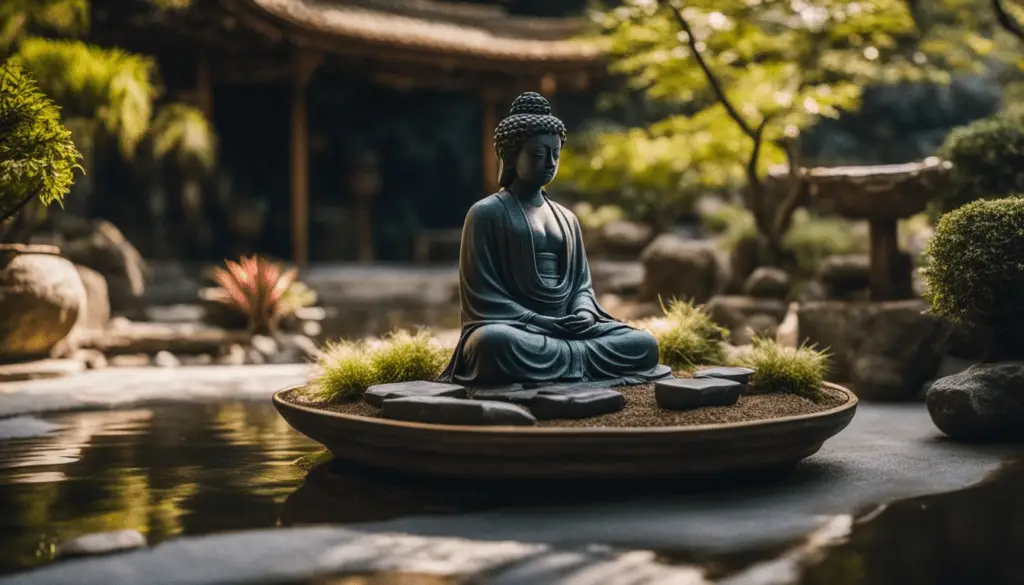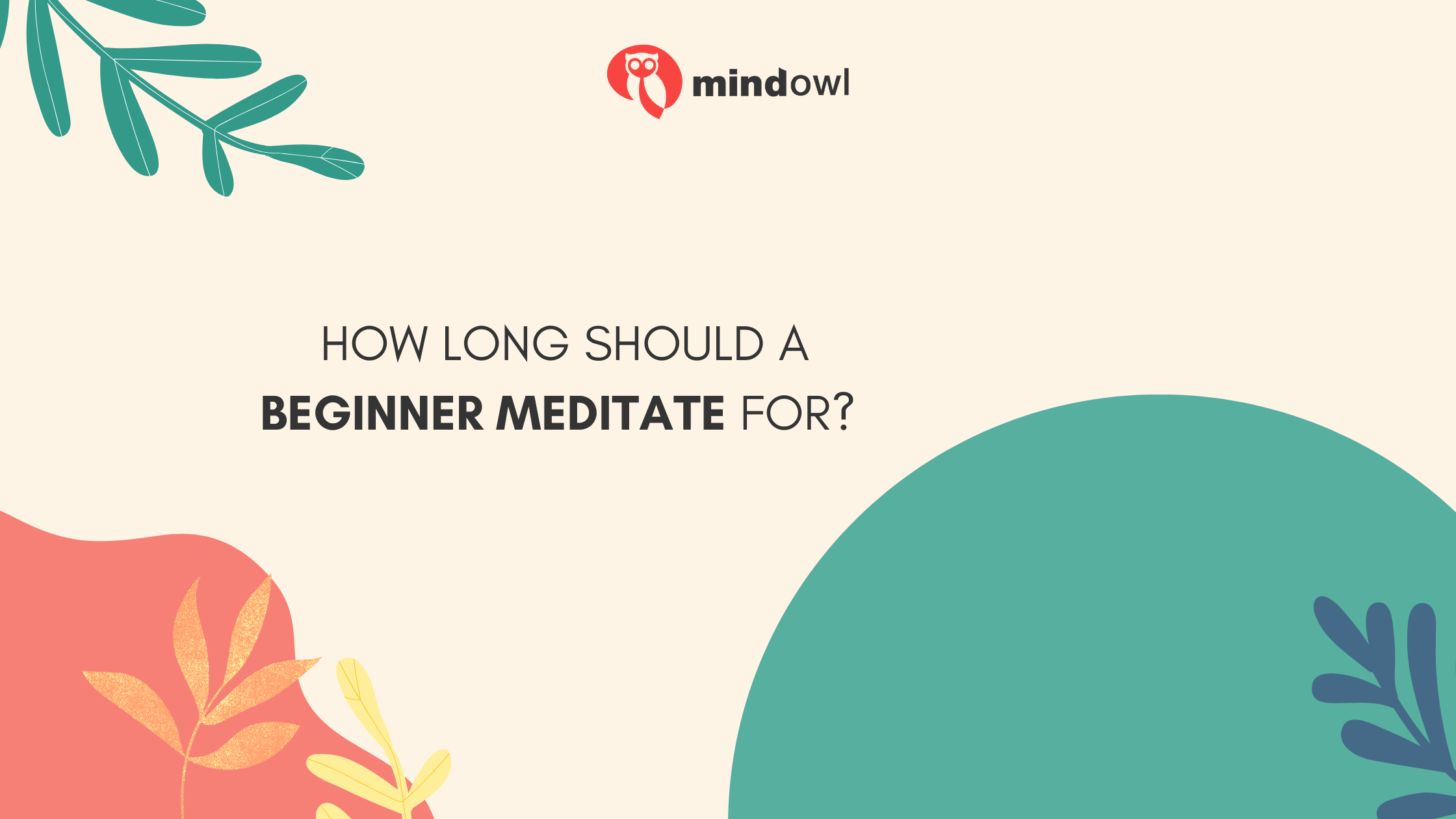Meditation has gained popularity in recent years as a way to reduce stress, improve focus, and promote overall well-being. But for beginners, the question often arises: how long should I meditate for? The answer is not a one-size-fits-all solution, as the ideal meditation duration can vary from person to person. Factors such as experience level, personal goals, and time constraints all play a role in determining the appropriate length of a meditation session.
In this article, we will explore the recommended meditation times for beginners and provide some tips on how to gradually increase the duration as you progress in your practice.
Whether you have just begun your meditation journey or are looking to fine-tune your current routine, understanding the importance of finding the right balance of time spent in meditation is essential for reaping the benefits of this ancient practice. Join us as we delve into the world of meditation and discover the optimal duration for beginners.
Key Takeaways
- Starting with five minutes a day is good for beginners. This short time helps fit meditation into your daily life and starts showing benefits.
- You can try different lengths to find what works best. Some prefer one long session; others like multiple short ones. Listening to your body and mind will guide you.
- Using guided meditation can help beginners learn how to focus and breathe properly, making it easier to get into the habit of meditating.
- Practising mindfulness techniques improves concentration, relaxation, and stress reduction by focusing on the present moment without judgment.
- As you get more comfortable with meditation, slowly increase your time. Consistency is important for building a regular practice that fits into your lifestyle.
Why is Meditation Important for Beginners?
Establishing a regular meditation practice offers numerous benefits, including a greater sense of calm and peace. This foundational step not only helps manage stress but also lays down the groundwork for a healthier mental state.
Beginning to meditate brings one closer to mindfulness and enhances self-awareness. It allows individuals to tune into their thoughts and feelings without judgment, creating space for growth and self-discovery.
Engaging regularly with meditation practices fosters an environment where one can learn how their mind works, leading to better management of emotions and reactions in daily life. Through this mindful journey, beginners start feeling calmer and more centred, making meditation an essential part of achieving mental clarity and resilience.

Finding the Right Meditation Length for Beginners
The Ideal Amount of Time for Beginners
For beginners, starting to meditate for five minutes a day can be very helpful. This time is short enough to fit into your daily routine easily but long enough to start feeling the benefits of meditation.
Scientific research supports this approach, suggesting that even such brief sessions can significantly contribute to stress reduction and improved focus.
Gradually, you might find it beneficial to extend your meditation time. Pubmed recommends 13 minutes per day for noticeable results, while others may aim for up to 20 minutes twice a day as advised in the Transcendental Meditation tradition.
The key is consistency and listening to what works best for you; some may prefer longer single sessions while others find multiple short sessions throughout the day more effective. Always keep your practice adaptable according to personal comfort and goals.
Is There Such Thing As A Meditation That’s Too Short or Too Long?
Meditation doesn’t have a strict time limit. What feels like a quick few minutes to some might be too long for others. Experts mention that sessions can range from five to 45 minutes, depending on what works best for you.
The idea is to make meditation fit into your life comfortably without feeling it’s a burden. Short sessions are still beneficial and can often lead people to meditate more than once a day.
Balancing between not enough and too much is key, especially when starting out. A suggestion is not to exceed 20 minutes if you’re new, as this helps prevent feelings of discouragement or boredom.
One Long Session vs. Multiple Short Sessions
Understanding the balance between meditation length is crucial. Let’s explore the benefits and challenges of one long session versus multiple short sessions.
One Long Session:
- Deep Focus: A longer session gives you the time to delve deeper into your mindful state, potentially reaching a more profound level of calmness.
- Skill Improvement: With more time, you can work on meditation techniques such as body scans or breath focus, enhancing your skills.
- Time Efficiency: For some, it’s easier to find a single block of time in their day rather than multiple smaller ones.
- Challenges Include: Committing to a long session might be daunting for beginners and could lead to frustration or loss of interest if concentration wanes.
Multiple Short Sessions:
- Flexibility: Short sessions can fit into busy schedules more easily, allowing you to meditate at different times of the day.
- Sustained Energy: Keeping sessions brief may help maintain high levels of concentration and energy throughout.
- Habit Building: Frequently returning to meditation can help solidify it as part of your daily routine, making it a consistent practice.
- Challenges Include: It might be harder to reach a deep meditative state in shorter periods, and frequent interruptions could disrupt focus.
Both approaches have their merits, depending on individual preferences and lifestyles. Starting with short sessions and gradually increasing duration might offer a balanced path forward for those new to meditation.

Tips for Deepening Your Meditation Practice
Focusing on Breathing and Body Awareness
Focusing on breathing and body awareness helps calm the mind and reduces stress. These techniques are key for those just starting with meditation.
- Start with Deep Breathing: Deep breaths can lower stress levels significantly. Begin by taking slow, deep breaths, inhaling through your nose and exhaling through your mouth. Feel each breath filling your lungs and then slowly leaving, bringing a sense of calm with every exhale.
- Pay Attention to Your Body: Sit in a comfortable position, either on a cushion or a chair. Make sure your back is straight but not stiff. Notice how your body feels—the weight as you sit, any sensations in your legs or arms, or the feeling of clothing against your skin.
- Close Your Eyes Gently: With eyes closed, you can better focus inward. This minimises distractions and helps you concentrate more deeply on your breathing and the sensations within your body.
- Notice the Air Movement: As you breathe deeply, pay attention to how the air moves in and out of your body. Feel the cool air entering through your nostrils and the warmer air exiting when you exhale.
- Count Your Breaths: To help keep your attention focused, try counting each breath. Count ‘one’ as you inhale, ‘two’ as you exhale, up to ten, then start again at one.
- Be Kind to Your Wandering Mind: It’s normal for thoughts to drift into your mind as you meditate. When this happens, gently bring your focus back to your breath without judging yourself for getting distracted.
- Check-In with Your Body Regularly: Every few minutes during meditation, mentally scan from head to toe (or toe to head). Acknowledge any tension without trying to change it—just observing helps deepen bodily awareness.
- Embracing gentle movements if needed: If sitting still becomes uncomfortable, allow yourself small adjustments or gentle stretches while keeping most of your focus on breathing and sensations within.
- Using Visualization Techniques: Picture each breath as a wave that washes over you—bringing peace with each rise and taking away tension with each fall.
- Turn it into a habit: Make meditation a daily habit even if it’s only for five minutes at a time; consistent practice strengthens mindfulness and deepens relaxation responses over time.
Together these steps make up a solid foundation for beginners looking to incorporate mindfulness meditation into their routine effectively—a simple yet profound way to start experiencing the benefits of regular meditation practice including reduced anxiety and better focus.
Using Guided Meditations for Beginners
Using guided meditation can make the start of your meditation journey smoother. A voice leads you through each step, helping to calm your mind and guide your focus. This makes it easier for beginners to relax and find their inner peace without worrying about doing it right.
Guided sessions are perfect because they offer structure. They teach you how to breathe, where to direct your thoughts, and how to stay present.
Guided meditations come in various forms, including apps like Headspace that offer a range of options for different moods or goals. Whether you need help sleeping better or reducing stress, there’s a guided meditation out there for you.
Practicing Mindfulness Techniques
To restore calm and inner peace, even a few minutes of mindfulness can make a significant difference. These techniques, including breath meditation and guided imagery, are key to relaxing both body and mind while helping to reduce stress.
- Focus on your breathing: Sit in a comfortable position, either on a chair or a meditation cushion. Start by taking deep, slow breaths. Try to keep your focus on the rhythm of your inhalation and exhalation. If your mind wanders, gently bring your attention back to your breath.
- Guided imagery for relaxation: Find a quiet spot and close your eyes. Listen to recordings that describe peaceful, calming scenes like a beach or a forest. Imagine yourself in these settings. This can help you feel more relaxed and less stressed.
- Body scanning promotes awareness: Begin at the top of your head and slowly move down through each part of your body. Notice any tension or discomfort without trying to change it. This helps connect you with the present moment and encourages relaxation.
- Mindful eating enhances enjoyment: Turn off all distractions and focus solely on the act of eating. Notice the colours, smells, textures, and flavours of your food. Eat slowly to fully experience each bite, which can improve digestion and satisfaction from meals.
- Walking meditation combines movement with mindfulness: Choose a quiet path where you can walk slowly without distractions. As you walk, pay close attention to the sensations in your feet as they touch the ground, the rhythm of your steps, and how it feels to move through space.
- Listening mindfully develops concentration: In a quiet place, focus on different sounds around you – birds chirping outside or the hum of an appliance. Listen without judgement or creating stories about what you hear; just notice the sounds as they come and go.
- Practice gratitude for positive thinking: At the end of each day, think of three things you’re grateful for. It could be anything from enjoying a good meal to having a meaningful conversation with a friend. Reflecting on positive experiences can boost mood and overall well-being.
Gradually Increasing Your Meditation Time
When to Increase Your Meditation Time
As you become comfortable with your current meditation duration, gradually increase it to practice mindfulness for longer. This can help deepen your experience and enhance the benefits of meditation.
It’s advisable not only to consider increasing the time but also keeping a consistent practice, starting small, and making it a habit to get the most benefit.
Remember, there’s no fixed or right amount of time – it varies from person to person. Therefore, listen to your body and mind while finding the ideal length that works best for you.
Keeping a Consistent Practice
Consistency is key in meditation practice. Set aside a specific time each day for your sessions. Avoid skipping days to build a routine and form the habit of meditating daily. Stick to shorter sessions if needed, but make sure you practice regularly to reap the benefits over time.
Build up from short sessions gradually as your consistency improves and it becomes easier to meditate for longer durations.
It’s essential to find a quiet spot where you won’t be interrupted during your meditation. This dedicated space will help signal to your brain that it’s time for practice, making it easier to slip into focus each day.
Conclusion
Finding the optimal meditation duration for beginners is a personal journey. Starting with short sessions and gradually increasing time can be beneficial. Consistency in practice is key to reaping the full benefits of meditation, rather than focusing solely on session length.
Remember, there’s no one-size-fits-all approach – it’s about finding what works best for you.
FAQs
1. How do I start meditating as a beginner?
To begin, find a quiet place where you can sit comfortably, either in a chair or cross-legged on the floor. Focus your attention on your breath and try to sit still. If your mind wanders, that’s okay; gently return your focus back to your breath.
2. What is the right amount of time for a beginner to meditate?
Start small with just a few minutes each day. Even five minutes is a good beginning. As you get more comfortable with meditation, you can gradually increase the length of your sessions.
3. Is there a right or wrong way to meditate?
No, there’s no such thing as the “right” way to meditate. Whether you choose mindfulness meditation, Zen practices or another type of meditation, what’s important is making it work for you.
4. Can meditation help me feel calmer and sleep better?
Yes! Regular meditation helps reduce stress and can lead to better sleep over time. It enables us to let go of daily worries and relax more easily.
5. What if I get distracted while trying to meditate?
Don’t worry if you find your mind wandering or if outside noises distract you; this happens even to experienced meditators! Each time it happens, simply acknowledge it and gently bring your focus back to the breath.
6. How often should I practice meditation for optimal results?
Making meditation a habit is key; aim for daily practice even if it’s just for a few minutes at first. Over time, regular practice will help connect deeper with yourself and may encourage longer sessions naturally.
MindOwl Founder – My own struggles in life have led me to this path of understanding the human condition. I graduated with a bachelor’s degree in philosophy before completing a master’s degree in psychology at Regent’s University London. I then completed a postgraduate diploma in philosophical counselling before being trained in ACT (Acceptance and commitment therapy).
I’ve spent the last eight years studying the encounter of meditative practices with modern psychology.

